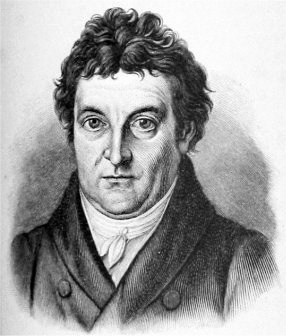“Os teus atos, e não os teus conhecimentos, é que determinam o teu valor.”
citado em "O diário de Marise: a vida real de uma garota de programa" - Página 146, Vanessa de Oliveira - Matrix Editora, 2006 - 414 páginas
Johann Gottlieb Fichte foi um filósofo alemão .
Foi um dos criadores do movimento filosófico conhecido como idealismo alemão, que desenvolveu a partir dos escritos teóricos e éticos de Immanuel Kant. Sua obra é frequentemente considerada como uma ponte entre as ideias de Kant e as de Hegel. Assim como Descartes e Kant, interessou-se pelo problema da subjectividade e da consciência. Fichte também escreveu trabalhos de filosofia política e é considerado como um dos primeiros pensadores do pangermanismo.

“Os teus atos, e não os teus conhecimentos, é que determinam o teu valor.”
citado em "O diário de Marise: a vida real de uma garota de programa" - Página 146, Vanessa de Oliveira - Matrix Editora, 2006 - 414 páginas
Fonte: The Characteristics of the Present Age (1806), p. 83
Fonte: The Characteristics of the Present Age (1806), p. 64
With regard to this fundamental principle, as we have now declared and adopted it without farther definition or limitation, this third Age is precisely similar to that which is to follow it, the fourth, or age of Reason as Science,—and by virtue of this similarity prepares the way for it. Before the tribunal of Science, too, nothing is accepted but the Conceivable. Only in the application of the principle there is this difference between the two Ages,—that the third, which we shall shortly name that of Empty Freedom, makes its fixed and previously acquired conceptions the measure of existence; while the fourth—that of Science—on the contrary, makes existence the measure, not of its acquired, but of its desiderated beliefs.
Fonte: The Characteristics of the Present Age (1806), p. 19
Preface
The Characteristics of the Present Age (1806)
Jane Sinnett, trans 1846 p.125
The Vocation of Man (1800), Faith
Jane Sinnett, trans 1846 p.123
The Vocation of Man (1800), Faith
Jane Sinnett, trans 1846 p.120
The Vocation of Man (1800), Faith
Jane Sinnett, trans 1846 p.115
The Vocation of Man (1800), Faith
Jane Sinnett, trans 1846 p.110
The Vocation of Man (1800), Faith
Jane Sinnett, trans 1846 p.104
The Vocation of Man (1800), Faith
Jane Sinnett, trans 1846 p.94
The Vocation of Man (1800), Faith
Jane Sinnett, trans 1846 p. 88
The Vocation of Man (1800), Faith
Jane Sinnett, trans 1846 p. 77
The Vocation of Man (1800), Faith
Jane Sinnett, trans 1846 p. 60
The Vocation of Man (1800), Knowledge
Jane Sinnett, trans 1846 p. 53
The Vocation of Man (1800), Knowledge
Jane Sinnett, trans 1846 p. 50
The Vocation of Man (1800), Knowledge
Jane Sinnett, trans 1846 p. 47
The Vocation of Man (1800), Knowledge
Jane Sinnett, trans 1846 p. 44
The Vocation of Man (1800), Knowledge
Jane Sinnett, trans 1846 p. 24
The Vocation of Man (1800), Doubt
Jane Sinnett, trans 1846 p. 21
The Vocation of Man (1800), Doubt
Jane Sinnett, trans 1846 p. 13
The Vocation of Man (1800), Doubt
Fonte: The Vocation of Man (1800), Doubt, P. Preuss, trans. (1987), p. 4
Fonte: The Science of Rights 1796, P. 502, 503, 504
Fonte: The Science of Rights 1796, P. 474, 477
Fonte: The Science of Rights 1796, P. 459
Fonte: The Science of Rights 1796, p. 406
Fonte: The Science of Rights 1796, P. 324
Fonte: The Science of Rights 1796, P. 247
Fonte: The Science of Rights 1796, P. 220